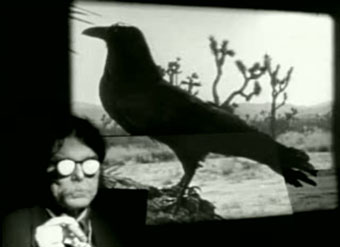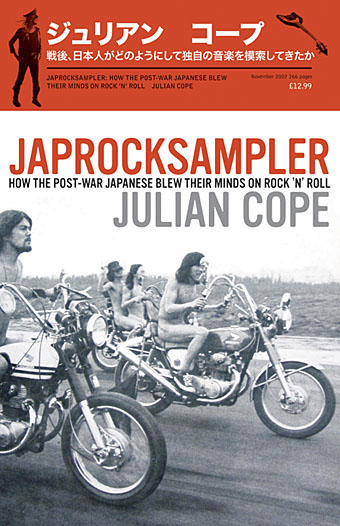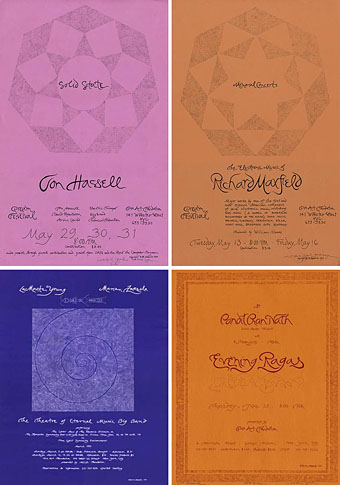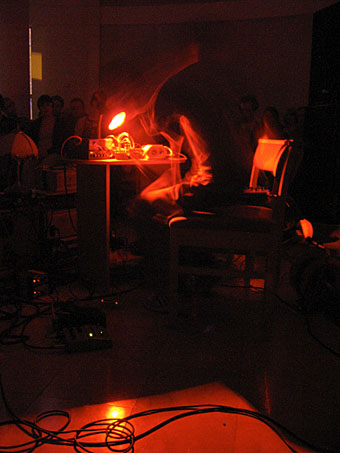
The Bacon-esque blur is Machinefabriek, aka Rutger Zuydervelt from the Netherlands, performing this evening at the Cross Street Chapel with Xela and friends. Events I’ve seen here before have been predominantly acoustic so it made a change to see something where the balance was shifted in favour of electronics or the electronic processing of acoustic sources. The chapel is a good, intimate venue, with seating in the round.
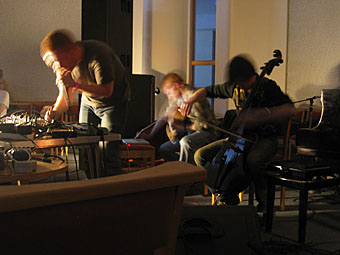
Xela (above) played first, comprising John Twells (Mr Type Records, left) with an amended line-up featuring Danny Saul on guitar and laptop with Greg Haines on cello and the chapel’s own piano which he proceeded to treat in a distinctly secular fashion. These three set the tone for the evening, starting quietly and harmoniously then working into an accumulated frenzy of noise. Type Records are one of the best labels around at the moment, all their releases (and, it should be said, those of these artists) are worth checking out.
There was a break from the noise with Soccer Committee, who aren’t a group of Eindhoven footballer managers but a young woman named Mariska Baars. Mariska plays very quiet (and very good) songs on guitar and it’s a shame that most of her pieces were so short. I didn’t get any photos as she was playing in near dark and rapt silence from the audience.
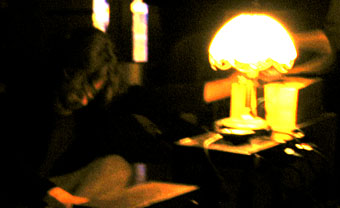
Next up was Wouter Van Veldhoven (above) playing a Stratocaster guitar through a variety of what looked like synth modules topped by an antique table lamp. One can’t help but speculate whether any German musicians (including my sainted Robert Henke) would dare to have such an anacronistic item near their gear.
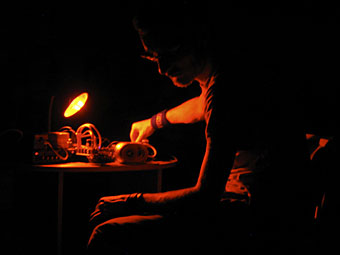
And so to Machinefabriek, an artist who releases a bewildering amount of limited edition CD-Rs, mostly on his own label. Mr Zuydervelt sat before his tiny table and proceeded to produce a quite incredible array of sounds from an electric guitar and what looked like effects pedals and electric egg-timers (and a pan-scourer…?). As with Xela, the sounds proceeded from melodic ambience to noise, in this instance great sheets of harmonic distortion which—like all the best noise performances—became deliriously overwhelming. Brilliant, compelling stuff, and it’s a shame he didn’t play for longer. After this, Wouter and Mariska returned and the three quickly launched into an improvised coda. A great evening.
Previously on { feuilleton }
• Helios in Manchester
• Music on Cross Street

